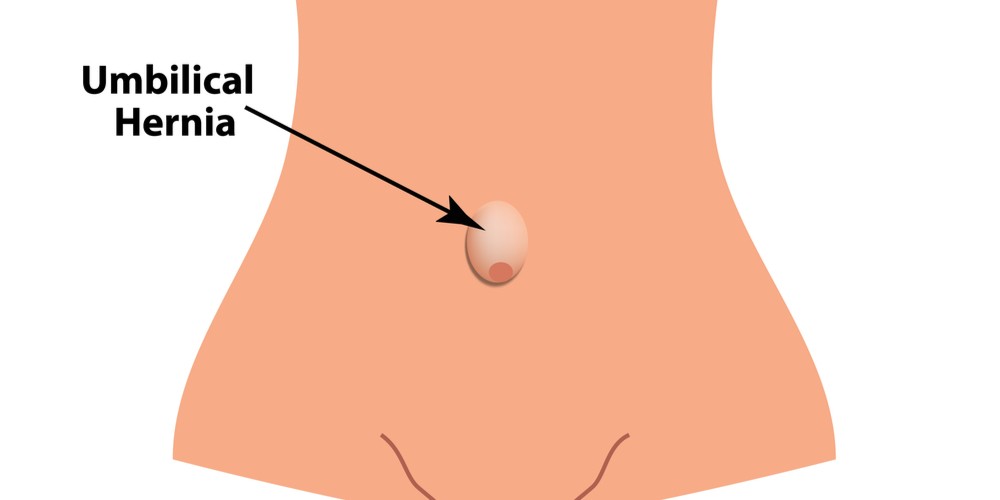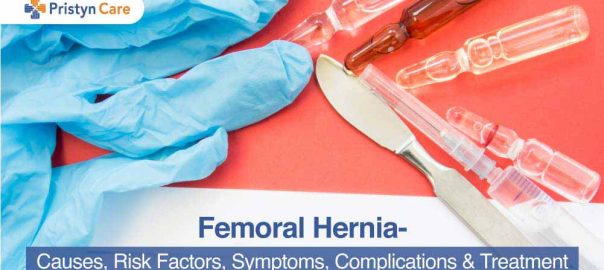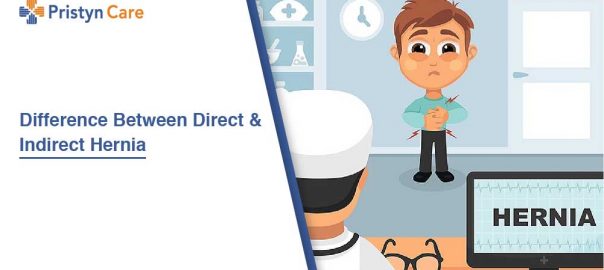![]() Views: 12,240
Views: 12,240
Umbilical Hernia in Adults and Other Related Problems
For most people who are living with the discomfort of an umbilical hernia, surgery is recommended to repair the problem.
Dedicated Support at Every Step!
Our Doctors are available 24 hours a day, 7 days a week to help you!
An umbilical hernia is the bulging out of the tissue near the belly button or navel. The hernia is caused when organs protrude from its original place due to the weakening of the surrounding tissues.
This results in a herniated sac that holds a part of the intestine, fat or fluid.
Table of Contents
What are the causes of an umbilical hernia in adults?
The most common causes of umbilical hernia in adults are:
Chronic health conditions that give abdominal pressure such as:
- Carrying excessive belly fluid
- Chronic cough
- Difficulty urinating due to an enlarged prostate
- Prolonged constipation
- Repetitive vomiting
- Obesity
- Straining such as during weight lifting or childbirth
No Cost EMI, Hassle-free Insurance Approval
How do doctors diagnose umbilical hernia?
An experienced doctor diagnoses an umbilical hernia during a physical examination. They may also be able to determine what type of hernia it is. If the doctor wants to screen for complications, they may request an abdominal ultrasound, X-ray, CT scan or blood test.
Why do you need to repair umbilical hernia?
What are the dangers of not treating umbilical hernia in adults?
Some people believe in the misconception that as the hernia is not causing any significant symptoms, it can cure on its own without any proper treatment.
In such cases, people believe delaying treatment is the best option. But what they fail to understand is that if the hernia is left untreated for long, not only the size of the bulge increases, more uncomfortable and in the worst-case scenario, life-threatening.
How To Prepare for An Umbilical hernia surgery?
The preparation of hernia surgery is equally important as the recovery. So there are some important tips that can help in preparing for the surgery-
- For smokers, you will be asked to stop smoking as it can increase the risk of getting a wound or chest infection.
- There will be fasting instructions. Typically, patients must not eat nor drink for six hours before the surgery. However, some patients are allowed to sip water occasionally.
- On the day of the surgery, heart rate and blood pressure, urine is also tested.
- The surgeon asks to sign a consent form that confirms that you understand the risks, benefits and possible alternatives to the procedure.
What happens in laparoscopic surgery for an umbilical hernia?
Laparoscopic umbilical hernia repair has evidently replaced open surgery method. During laparoscopic surgery, the doctor makes small incisions around the bulge.
After this, a long, thin tube with a lighted camera on the end, also known as a laparoscope, is inserted through one of the incisions. It allows the surgeon to see inside your abdominal cavity on the screen.
The surgeon gently places the bulging tissue and abdominal lining back through the hole in the abdominal wall. Then they place the mesh into the abdomen to strengthen the area. Then they close the incisions using glue which is completely safe and dissolvable.
To begin normal daily activities, it can take up to 4 weeks to fully recover after hernia surgery. But with the laparoscopic method, you will be able to recover within a week.
How To Recover Fast After Umbilical Hernia Repair?
The recovery period after any surgery is very crucial. This is the period that decides whether the hernia can recur or not.
One needs to be very careful during the recovery period. Here are some precautionary measures that can help-
- For pain relief, you can take the prescribed-painkillers such as paracetamol or ibuprofen. Take only prescribed dosages and look for directions mentioned in the medicines.
- Initially, for 48 hours of the surgery, the general anesthesia administered during the surgery can hamper coordination and reasoning skills. Moreover, drink alcohol, operate any heavy machinery or sign any legal documents.
- Don't drive until you are confident enough. For the initial days of the surgery, ask someone to drive you around. Discuss with the doctor first before driving.
- There will be some discomfort in the abdominal area for a week or two. Hence, avoid straining or stretching the healing wound or it can increase swelling. Don't lift or perform any strenous exercise for initial first two weeks.
- Don't take a shower or bath for the first two days.
- Let the stitches dry up on their own.
Cases, Which Require Delay in surgery
The surgery can be put off if:
- The hernia is small and there is no symptoms or if symptoms don't bother you
- Hernia can be pushed back into the belly or when you lie down. (if not, surgery must be done sooner)
- You are pregnant
- You have other problems that make surgery dangerous
Consult a doctor before wearing the truss (belt) for a hernia. These devices aren't recommended for treating hernias and sometimes can do more harm than good. There is a very slim chance that your doctor might think that a truss would work.
Over time, hernias tend to get bigger as the muscle wall of the belly gets weaker and more tissue bulges through. But some small, hernias never need repair.
Can obesity be a problem too?
According to a study published in the journal Annals of Laparoscopic and Endoscopic Surgery, rising life expectancy, an increasing percentage of obesity and comorbidities such as diabetes are leading to an increasing prevalence of incisional hernias.
Although a hernia can develop in anyone, the elderly, smokers and obese patients are at a much higher chance of developing one. It is now well-established that obesity can progressively cause and/or exacerbate a wide spectrum of co-morbidities, including
- Type 2 diabetes mellitus
- Hypertension
- Gallbladder disease
- Dyslipidemia
- Cardiovascular disease
- Non-alcoholic fatty liver disease
- Reproductive dysfunction
- Respiratory abnormalities
- Psychiatric conditions, and
- Increase the risk for certain types of cancer
Conclusion
Adults usually do not monitor their health issues as they should whether it is an umbilical hernia, hypertension, gallbladder disease or risk of cancer. Get your elders diagnosed for their better life. Book an appointment and consult a specialist for any further problems.
References
- Raquel Maia (2019), rising life expectancy, an increasing percentage of obesity and comorbidities such as diabetes are leading to an increasing prevalence of incisional hernias, DOI: http://ales.amegroups.com/article/view/5013/html
Also Read:










